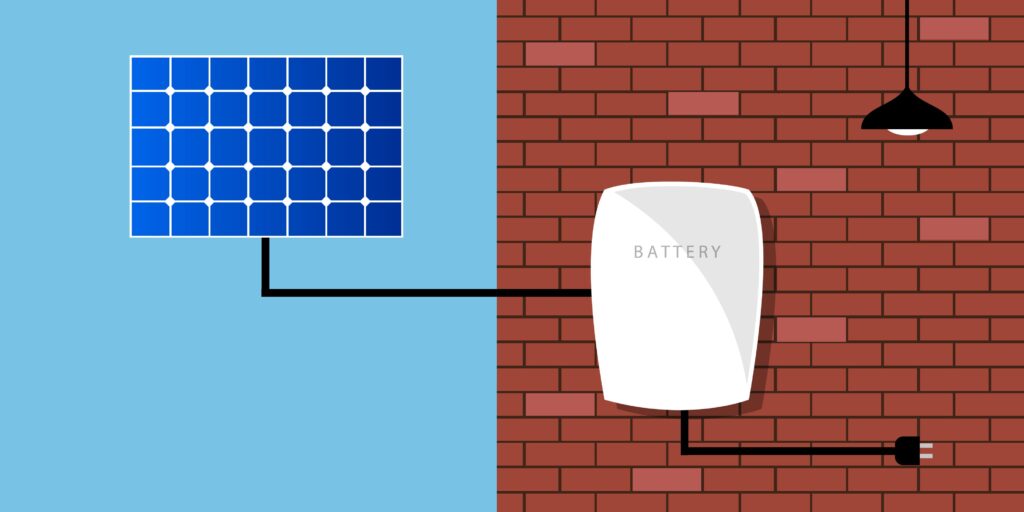Today, the market share of sustainable and renewable energy sources is continuously increasing. This is especially true since more and more people are becoming more interested and now even adopting eco-friendly power sources, particularly solar panels, to help save the environment. And one way to do this is by investing in home batteries.
Solar Energy And Home Batteries
If you’re harnessing power from the sun to fuel your day-to-day living, you might be familiar with home batteries. These are residential batteries used to store solar energy effectively. Also, they can help improve the efficiency of your solar investments, such as solar panels, by keeping excessive solar energy for emergency backups and crushing higher seasonal energy rates.
Since this technology is young, perhaps you may have questions about it. In that case, this post may be of some help to you. This article discusses things you need to know about home battery storage.

1. How Is Solar Energy Stored In Batteries?
Home battery storage functions by storing any excess energy generated by your solar panels during the day. And once the battery has enough charge, it’ll be able to provide renewable energy for your home. Also, you can take advantage of this electricity even when the sun isn’t around, as long as it has stored enough supply. For instance, you can use it to power your home overnight to reduce your energy consumption and electric bills or when there’s a blackout due to storms and hurricanes.
On top of that, the grid may even pay you back for the excess energy you export to them. However, this benefit may only be limited to a few home battery storage providers. With that, consider calling your provider now to know if you’re eligible for this.
2. How Much Is Home Battery Storage?
Typically, home battery storage costs could range from USD$8,500 to USD$15,000- with the installation fee not included yet. But depending on the brand of home battery storage you’re planning to install, the price may still increase.
Furthermore, other factors may also influence the cost of your home battery storage- the equipment you install, your installer, and the electrical work during installation. But perhaps, the most critical factor that drives the overall cost is the device itself.
With that, here’s what you need to consider when choosing home battery equipment:
- Quality: The quality of the device you’re planning to get can affect how long your solar investment will last. And so, to make sure you get your money’s worth, carefully check if the home battery you’re planning to get passed the rigorous safety and testing requirements.
- The Chemistry Of Batteries: When choosing a battery, you’ll most likely select between lithium iron phosphate (LFP) and nickel manganese cobalt (NMC). NMC tends to be denser, while LFP tends to last longer. Although opting for LFP may be more expensive, considering its slightly bigger size, you may need to look for a storage cabinet that can accommodate this, and the installation cost may also be higher.
- Inverter System: Inverter is an added feature that may help you convert the energy stored in your solar battery into usable AC power.
3. How Long Does A Fully-Charged Battery Last?
This depends on how you use it and on its storage capacity. In most cases, it can last for around 12 to 13 hours with a few lights on, a TV and fridge running, and a bit of cooking. But if you add more, especially air conditioners, convection ovens, and dishwashers, you’ll start to drain it at a faster rate. For this reason, a fully-charged battery may last only two to three hours.
4. What Is The Lifespan Of Home Battery Storage?
Usually, the lifespan of home battery storage is measured in cycles—one cycle equals one complete battery recharge and discharge. Some types of batteries have more than 10,000 cycles, which may last for 10 years. In addition, the difference in lifespan is most likely due to the chemistry of the battery.
Final Words
Home battery storage is one of the most effective ways to store excess energy from your solar panels. With this, you can be sure that no energy will be wasted. Also, you can even make money out of it by exporting excess energy back to the grid. But before you do, ask your provider about it first. Furthermore, if you have any unanswered questions, call your local service provider for a more detailed explanation. And if you still haven’t installed one yet, perhaps this may be the right time to consider having one to improve the performance of your solar investments.










